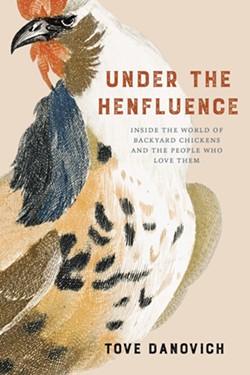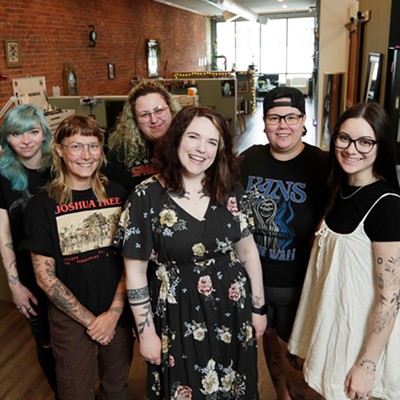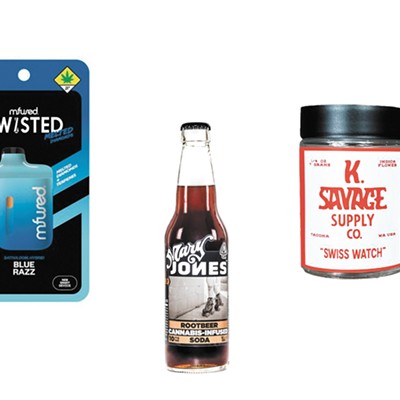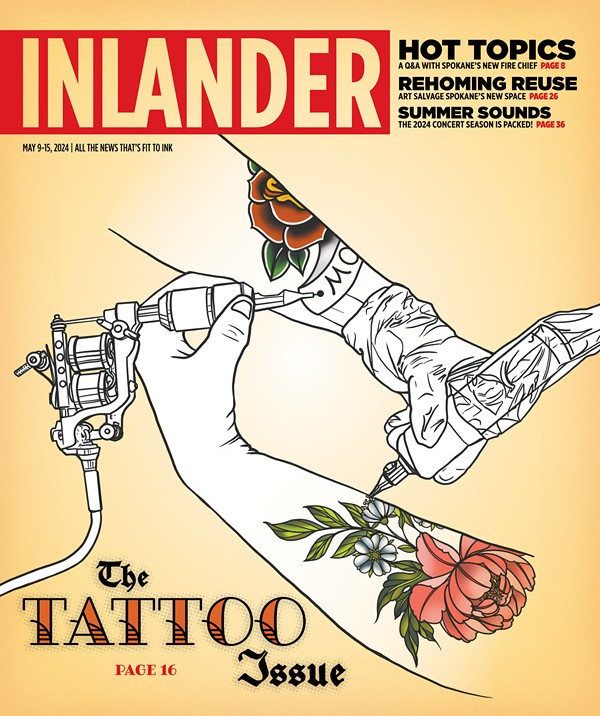Birds are known to be among the most intelligent creatures on the planet, yet one fowl is still waiting to cross the road and join the rest of the flock: the chicken.
In her new book Under the Henfluence, Tove Danovich strives to clear up misconceptions about chickens being simple-minded animals primarily raised as a source of food by illustrating the complexities of their behavior, their interactions with other animals, and their cultural significance.
"When we talk about chickens in particular, we usually just think of them as being dumb," Danovich says. "Like 'Walking around like a chicken with its head cut off,' is a very common phrase that doesn't speak very highly of them."
Upon moving from New York City to Portland, Oregon, Danovich's longtime dream of having her own chickens became reality, but she didn't expect to fall so deeply in love with the birds.
"I knew I would like them enough to keep them alive and want to take on the responsibility of caring for them," she says. "I was really surprised by how complex and interesting they are, but also how silly and charming and calming they are to be around."
Danovich began searching for a book chronicling the lives of chickens and their behavior but was unable to find anything that delved so deeply into the fowls' internal worlds.
"I just wasn't finding the thing I wanted to read," she says. "I started taking a lot of notes and realized something was there."
Danovich's first trio of chicks arrived in a box, mailed from Ohio to her local post office. To learn more about the hatching companies raising and sending chicks all over the U.S., she decided to book a trip to visit the Murray McMurray Hatchery in Iowa.
While seeing coops filled to the brim with hens and roosters, Danovich realized how massive demand is for backyard chickens, and that hundreds of millions of roosters are culled each year in the U.S. Due to their loud crowing, keeping roosters is banned in many cities (including within Spokane city limits). And since many farms need a surplus of hens to meet egg production needs, roosters are less valuable commodities.
FOLLOW TOVE
DANOVICH'S FLOCK
Instagram: @bestlittlehenhouse
Additionally, certain chicken breeds are victims to whirlwind trends, making it difficult for hatcheries to predict future demands for certain breeds and resulting in the death of surplus chicks that aren't widely desirable anymore.
Chickens also experience a variety of health complications as a result of domestication. Over the years, they've been bred to be larger than their ancestors and to produce significantly more eggs, a change aided by their reliance on humans for survival. All the energy hens once needed to spend roaming to find food now just goes into egg laying.
Along with that comes a variety of reproductive issues in many hens, shortening their lifespans. And because many veterinarians don't research the health issues unique to chickens, it can be difficult to aid them when they get sick or to catch issues early on.
"Even if you catch these things ahead of time, often there really isn't anything you can do, and it's quite hard every time that happens," Danovich says.
While chickens are viewed by many as food and nothing more, Danovich came across the Ohio National Poultry Show, an event people from around the country flock to to show off their feathered friends.
While attending the show, she witnessed the careful attention these chicken owners give to grooming their chickens, selecting unique breeds to display and the overall love they have for the fowl. In her research, Danovich discovered that chicken pageantry dates back to the mid-1800s, when Queen Victoria received seven captivating chickens, spurring a media frenzy and the beginning of poultry shows.
The infatuation around collecting rare breeds of chickens soon died down, though, and chickens' legacy as a populous, simple farm animal took center stage once more. Danovich says the sheer number of chickens across the world contributes to our general tendency to overlook the species.
"Even though we have a lot of cows and pigs and other farm animals, they just really pale in comparison to the number of chickens that we raise and then kill for food," she says.
While it's easier to ignore the harsh realities of commercial farming to avoid guilt over eating chicken, eggs and other meat, Danovich believes it's important to acknowledge it.
"The animals would be a lot better off if we allowed ourselves to know, and then fought for better conditions and for the animals in our care that we are relying on for food," she says.
She hopes that Under the Henfluence shows readers a different side of chickens, one that she's gained after fostering a deep connection with her birds and learning to interpret their at times expressionless interactions and behaviors.
"This book is about chickens, obviously, but I think any living creature, no matter how big or small, is more interesting and more complicated the longer you look at them," she says. "Chickens are worthy of our curiosity." ♦
Tove Danovich: Under the Henfluence • Sat, June 17 from 7-8 pm • Free • Auntie's Bookstore • 402 W. Main Ave. • auntiesbooks.com • 509-838-0206























